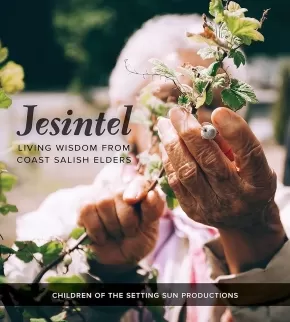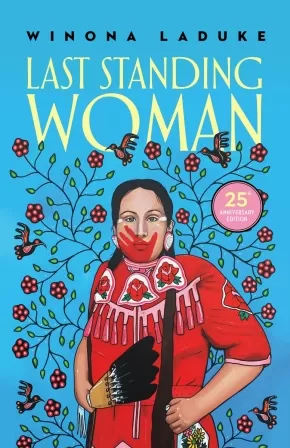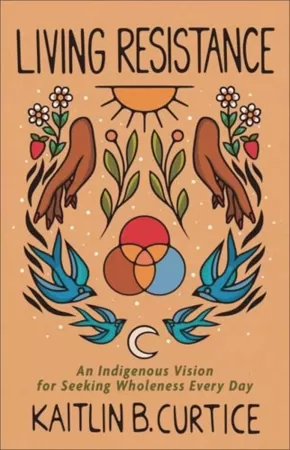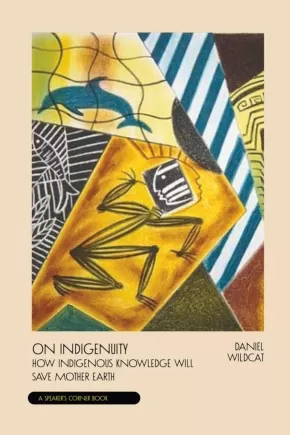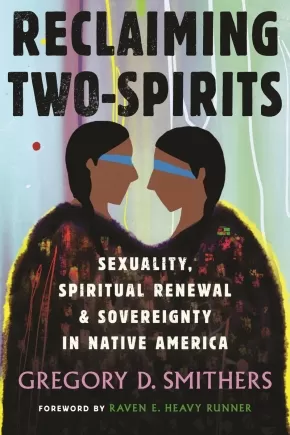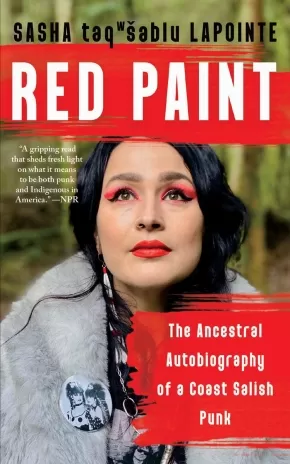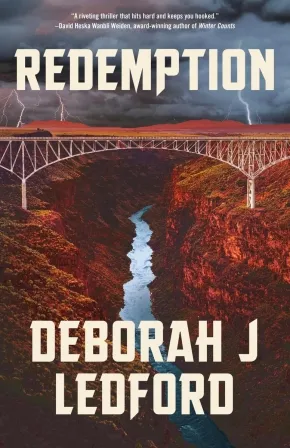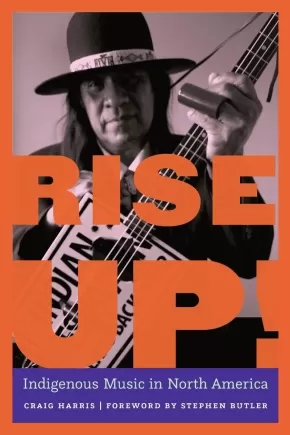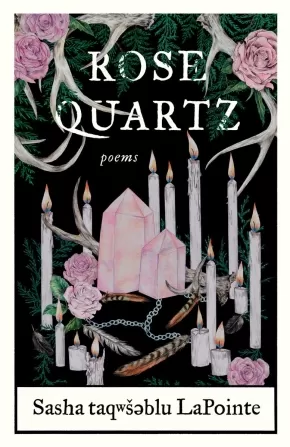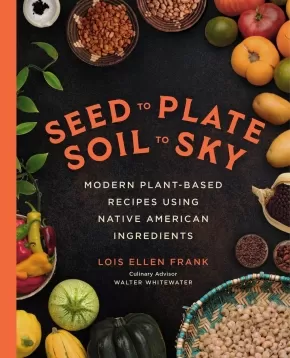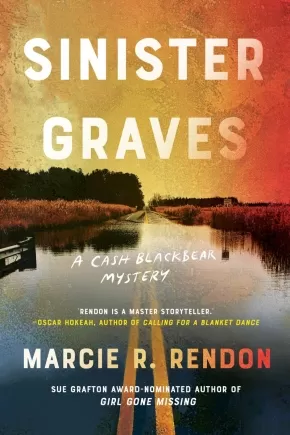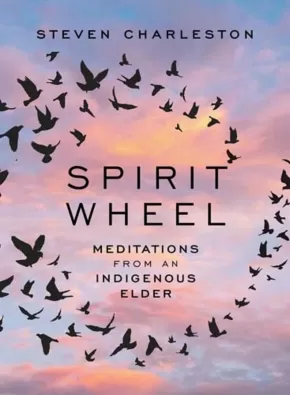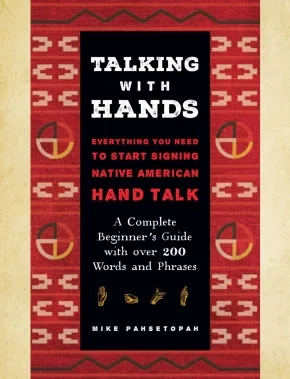Indigenous Peoples in the United States
Synopsis:
The gripping, forgotten tale of Ira Hayes—a Native American icon and World War II legend who famously helped raise the flag at Iwo Jima but spent the latter half of his life haunted by being a war hero.
IRA HAYES tells the story of Ira Hamilton Hayes from the perspective of a Native American combat veteran of the Vietnam generation. Hayes, along with five other Marines, was captured in Joe Rosenthal’s iconic photograph of raising the stars and stripes on Mount Suribachi during the battle for the Japanese Island of Iwo Jima. The photograph was the inspiration and model for the U.S. Marine Corps War Memorial in Arlington.
Between the time he helped raise that flag and his death—and beyond—he was the subject of more newspaper columns than any other Native person. He was hailed as a hero and maligned as a chronic alcoholic unable to take care of himself. IRA HAYES explores these fluctuating views of Ira Hayes. It reveals that they were primarily the product of American misconceptions about Native people, the nature of combat, and even alcoholism. Like most surviving veterans of combat, Ira did not think of himself as a heroic figure. There can be no doubt that Ira suffered from PTSD, which is a compound of survivor’s guilt, the shock of seeing death, especially of one’s friends, and the isolation brought on by feeling that no one could understand what he had been through. Ira’s life has been a subject of two motion pictures and a television drama. All these dramas sympathize with him, but ultimately fail to see his binge drinking as his way of temporarily escaping the melancholy, the rage he felt, his sense of betrayal, and the sheer boredom of peacetime.
IRA HAYES breaks apart the complexities of Ira’s short life in honor of all Native veterans who have been to war in the service of the United States. This is equally their story.
Reviews
"Written with page-turning excitement, Tom Holm, a Native scholar and veteran of Vietnam, offers an Indigenous realism through the heroic life of Ira Hayes, an Akimel O’odam marine in World War II. You will re-live the life of Ira Hayes who helped to raise the American flag at Iwo Jima after the bloodiest battle in Pacific during the war and became a legend. A gifted storyteller, Holm writes with an engaging insight making the reader feel right beside Ira Hayes in boarding school, combat, and struggling with PTSD."—Donald L. Fixico (Muscogee, Seminole, Shawnee and Sac and Fox), Regents’ and Distinguished Foundation Professor of History, Arizona State University
“WWII hero Ira Hayes would have appreciated this book. Author Tom Holm uses Ira’s courage and humility as tools to dissect the historic and current fate of his Native American people. And Ira’s challenges focus light upon the tragedy of war and the horrors of PTSD. A meaningful and beautifully-researched read.”—Judy Avila, bestselling author of Code Talker: The First and Only Memoir by One of the Original Navajo Code Talkers of WWII
“Tom Holm brilliantly and respectfully offers readers a rich and long overdue account of the life and tragic death of Ira Hayes that pierces through the stereotypes and misconceptions that plagued his during his life and long after his passing. It is a sensitive work that reminds us of the enormous emotional, psychological, and cultural difficulties Hayes had to cope with throughout his life. It is a splendid and timely contribution.” —Dr. David Wilkins, E. Claiborne Robins Distinguished Professor in Leadership Studies and citizen of the Lumbee Nation of North Carolina
“As a historian and a veteran, Tom Holm is uniquely positioned to write this important story, the first scholarly treatment of Hayes' life and times. Holm examines Hayes' struggles with fame and illness after World War II while offering insights into a post-war America hostile to Native identity and sovereignty despite the sacrifices made by Hayes and thousands of other Native Americans.”—Paul C. Rosier, Ph.D., Professor of History at Villanova University and author of Serving Their Country: American Indian Politics and Patriotism in the Twentieth Century
"An excellent piece of scholarship; the definitive work on this Native American veteran. Carefully nuanced and rich in context, Holm transcends and dispels the stereotypes of Ira Haye’s life to show the complexity of the Akimel O’odham experience, the impacts of World War II, the social use of alcohol in 1940s America, and his personal experiences from poverty, racism, and the unwanted and unending attention following the flag raising on Mount Suribachi. As Holm concludes, 'He should be remembered for who he was rather that for what the dominant society has been led to believe about him.'"—William C. Meadows, Missouri State University
"Tom Holm deservedly looms large in the history of Indigenous peoples’ military service in the wars of the twentieth century. In his new book, IRA HAYES, Holm reintroduces us to the iconic individual in ‘The Photograph’ of the flag-raising on Mount Suribachi. Holm extricates Hayes from the trope of tragedy and the racist stereotype of the ‘drunken Indian’ into which his story was confined during his lifetime and in which it remained trapped since his death. Instead, a complex Ira Hayes comes to life in the long context of his Akimel O’odham culture and community, American colonialism and racism, his military service, and his likely suffering from Post-Traumatic Stress Disorder. This tour de force is, by turns, compelling, devastating, and intensely humanizing."—R. Scott Sheffield, Professor of History at University of the Fraser Valley and co-author of Indigenous Peoples and the Second World War: The Politics, Experiences and Legacies of War in the US, Canada, Australia and New Zealand
“A strong contribution to the literature of World War II, Native American warriors, and the unseen wounds of war.”—Kirkus Reviews
Additional Information
320 pages | 6.35" x 9.25" | Hardcover
Synopsis:
“We need to learn and grow together, and if we are able to do this, we will create harmony,” counsels Tom Sampson, an elder of Tsartlip First Nation in British Columbia.
Dynamic and diverse, Coast Salish culture is bound together by shared values and relations that generate a resilient worldview. Jesintel—"to learn and grow together"—characterizes the spirit of this book, which brings the cultural teachings of nineteen elders to new generations.
Featuring interviews that share powerful experiences and stories, Jesintel illuminates the importance of ethical reciprocal relationships and the interconnectedness of places, land, water, and the spirit within all things. Elders offer their perspectives on language revitalization, Coast Salish family values and naming practices, salmon, sovereignty, canoe racing, and storytelling. They also share traumatic memories, including of their boarding school experiences and the epidemics that ravished their communities. Jesintel highlights the importance of maintaining relations and traditions in the face of ongoing struggles. Collaboration is at the heart of this work and informs how the editors and community came together to honor the boundless relations of Coast Salish people and their territories.
Elders Interviewed:
Tom Sampson (Tsartlip First Nation)
Virginia Cross (Muckleshoot Tribe)
Ernestine Gensaw (Lummi Nation)
Steve and Gwen Point (Stó:lō Nation)
Gene and Wendy Harry (Malahat Nation)
Claude Wilbur (Swinomish Tribe)
Richard Solomon (Lummi Nation)
Elaine Grinell (Jamestown S’Klallam Tribe)
Arvid Charlie (Cowichan Nation)
Amy George (Tsleil-Waututh Nation)
Nancy Shippentower (Nisqually Tribe)
Nolan Charles (Musqueam Indian Band)
Andy de los Angeles (Snoqualmie Tribe)
Jewell James (Lummi Nation)
Kenny Moses Sr. Family (Tulalip Tribal Nation)
Ramona Morris (Lummi Nation)
Reviews
"A beautiful sharing of thriving Coast Salish communities. Indigenous elders, cultures, and languages have so much precious wisdom to share, and Jesintel celebrates these through storytelling and photos. It is a generous gift to anyone who wants to better understand the resilience of Indigenous communities."- Michelle M. Jacob (Yakama), author of The Auntie Way: Stories Celebrating Kindness, Fierceness, and Creativity
Educator Information
Nineteen elders from Coast Salish communities in the Pacific Northwest and British Columbia offer a portrait of their perspectives on language, revitalization, and Coast Salish family values. Topics include naming practices, salmon, canoe journeys and storytelling.
Additional Information
224 pages | 9.00" x 10.00" | 144 colour illustrations | 1 map | Paperback
Synopsis:
Hopeful, irreverent, and deeply moving, Winona LaDuke’s Last Standing Woman chronicles the stories and struggles of an Anishinaabe community across seven generations.
Born at the turn of the 21st century, The Storyteller, also known as Ishkwegaabawiikwe (Last Standing Woman), carries her people’s past within her memories. The White Earth Anishinaabe people have lived on the same land since time immemorial. Among the towering white pines and rolling hills, each generation is born, lives out their lives, and is buried.
The arrival of European missionaries changes the community forever. Piece by piece, government policies rob the people of their land. Missionaries and Indian agents work to outlaw ceremonies the Anishinaabeg have practised for centuries. Grave-robbing anthropologists dig up ancestors and whisk them away to museums as artifacts. Logging operations destroy traditional sources of food, pushing the White Earth people to the brink of starvation.
Battling addiction, violence, and corruption, each member of White Earth must find their own path of resistance as they struggle to reclaim stewardship of their land, bring their ancestors home, and stay connected to their culture and to each other.
In this highly anticipated 25th anniversary edition of her debut novel, Winona LaDuke weaves a nonlinear narrative of struggle and triumph, resistance and resilience, spanning seven generations from the 1800s to the early 2000s.
Reviews
"Humor and compassion are ever present, and at its best, Last Standing Woman is a dignified and powerful retelling of one reservation's struggle for survival."— Booklist, quote from review of previous edition
"Rooted in LaDuke's own Anishinaabe heritage, the novel skillfully intertwines social history, oral myth and character study in ways reminiscent of Leslie Marmon Silko and Louise Erdrich." — Publishers Weekly, quote from review of previous edition
"LaDuke's characters are as vital and fully realized as any in a Louise Erdrich novel...Recommended for both public and academic libraries." — Library Journal, quote from review of previous edition
"The Anishinaabe culture leaps off the page and you can practically smell the fry bread cooking on the stove and hear the drums beating in the distance."— Book Snob, quote from review of previous edition
Additional Information
360 pages | 5.50" x 8.50" | Paperback | 25th Anniversary Edition
Synopsis:
In an era in which "resistance" has become tokenized, popular Indigenous author Kaitlin Curtice reclaims it as a basic human calling. Resistance is for every human who longs to see their neighbors' holistic flourishing. We each have a role to play in the world right where we are, and our everyday acts of resistance hold us all together.
Curtice shows that we can learn to practice embodied ways of belonging and connection to ourselves and one another through everyday practices, such as getting more in touch with our bodies, resting, and remembering our ancestors. She explores four "realms of resistance"--the personal, the communal, the ancestral, and the integral--and shows how these realms overlap and why all are needed for our liberation. Readers will be empowered to seek wholeness in whatever spheres of influence they inhabit.
Reviews
"Readers will find abundant wisdom in this accessible guide."--Publishers Weekly
"Curtice is a fresh and intelligent voice."--Library Journal
Educator Information
Table of Contents
Introduction
Part 1: The Personal Realm
1. What Is Resistance?
2. Art as Resistance
3. Presence as Resistance
4. Embodiment as Resistance
5. Radical Self-Love as Resistance
Part 2: The Communal Realm
6. Childcare as Resistance
7. Ethical Practices as Resistance
8. Solidarity Work as Resistance
9. Protecting the Land as Resistance
10. Kinship as Resistance
Part 3: The Ancestral Realm
11. Decolonizing as Resistance
12. Generosity as Resistance
13. Intergenerational Healing as Resistance
14. Liminality as Resistance
15. Facing History as Resistance
Part 4: The Integral Realm
16. Integration as Resistance
17. Interspiritual Relationship as Resistance
18. Prayer as Resistance
19. Dreaming as Resistance
20. Lifelong Resistance
Includes Acknowledgements, Notes, and an Author Bio at the end of the work.
Additional Information
208 pages | 5.50" x 8.50" | Hardcover
Synopsis:
A bold, clever, and sublimely sinister collection that dares to ask the question: “Are you ready to be un-settled?” Featuring stories by:
Norris Black • Amber Blaeser-Wardzala • Phoenix Boudreau • Cherie Dimaline • Carson Faust • Kelli Jo Ford • Kate Hart • Shane Hawk • Brandon Hobson • Darcie Little Badger • Conley Lyons • Nick Medina • Tiffany Morris • Tommy Orange • Mona Susan Power • Marcie R. Rendon • Waubgeshig Rice • Rebecca Roanhorse • Andrea L. Rogers • Morgan Talty • D.H. Trujillo • Theodore C. Van Alst Jr. • Richard Van Camp • David Heska Wanbli Weiden • Royce Young Wolf • Mathilda Zeller
Many Indigenous people believe that one should never whistle at night. This belief takes many forms: for instance, Native Hawaiians believe it summons the Hukai’po, the spirits of ancient warriors, and Native Mexicans say it calls Lechuza, a witch that can transform into an owl. But what all these legends hold in common is the certainty that whistling at night can cause evil spirits to appear—and even follow you home.
These wholly original and shiver-inducing tales introduce readers to ghosts, curses, hauntings, monstrous creatures, complex family legacies, desperate deeds, and chilling acts of revenge. Introduced and contextualized by bestselling author Stephen Graham Jones, these stories are a celebration of Indigenous peoples’ survival and imagination, and a glorious reveling in all the things an ill-advised whistle might summon.
Reviews
“All combined, these powerful pages use fantastical elements to create very human characters who suffer very real horrors, like oppression, poverty, abuse, mental illness and the erasure of long-existing cultures and traditions. This volume is a must for any library collection and will be devoured by speculative fiction fans who enjoy a sprinkle of social commentary within their scary books.” —Booklist
“Never Whistle at Night is all I’ve ever wanted in an Indigenous horror anthology. From doubles, to Empty People, to story theft, to zombies, this anthology explores the horror that lives in colonial violence, generational love and trauma, and our everyday lives. It’s a joy to see such a diverse representation of experience, background, and style in this carefully curated and terrifying collection.”—Jessica Johns, author of Bad Cree
“Story to story, Never Whistle at Night never failed to surprise, delight, and shock me. I’m a big fan of stories that make you feel like you’re standing at the edge of a cliff with a stranger’s fingers on the tip of your spine—and this anthology has that ungoverned, go-for-broke aesthetic that I love.”—Nick Cutter, author of Little Heaven
“An extensive collection of Indigenous stories ranging from the humorous to the terrifying, this anthology is a must-read for everyone. Your new favorite author is absolutely in this book.”—Amina Akhtar, author of Kismet
“Melodious, haunting, and visceral, Never Whistle at Night enchants from the very start with fiery confidence and merciless ghosts. These are stories that dig their fingers inside you and carve something truly special. An absolute must-read.”—Hailey Piper, Bram Stoker Award-winning author of Queen of Teeth
"Can you draw power from the spirit of a story? If the twenty-six tales in the essential Never Whistle at Night anthology are any indication, the answer is an emphatic yes. The title itself provides its own warning, but I'll go one step further: Never read this collection of spine-chilling stories alone at night. You just might not make it to morning."—Clay McLeod Chapman, author of Ghost Eaters
Additional Information
416 pages | 5.19" x 8.00" | Paperback
Synopsis:
Mother Earth is calling on us to act—the collective wisdom of thousands of years of Indigenous knowledge can guide us.
Indigenuity, or Indigenous ingenuity, stems from an ancient idea and practice that Native peoples have engaged in for millennia. It was born of a careful mindfulness and attentiveness to our planet and all of its creatures, and a recognition that human experience is intertwined with all that surrounds us. As a society, we rarely pay attention to our land, air, and water, exacting a high price for all life on this planet. On Indigenuity is a call for us to learn a key lesson: it’s time to apply ancient Indigenous wisdom to solve modern problems.
The author, leading Indigenous thinker Daniel Wildcat, discusses some of the most important Native knowledge that is the foundation of science, the environment, biology, and our culture, arguing that restoration through the practice of Indigenuity is essential if we are to make progress toward saving our home.
By surrounding ourselves with human creations, Wildcat contends that we have created an “insulated ignorance” for ourselves, and what we need to solve the problems of the twenty-first century is a different perspective. Drawing upon history, personal experiences, and extensive research, Wildcat invites readers on a profound journey of discovery, bridging the gap between how we’ve already tried to help our planet and the traditional Indigenous knowledge that could be the key to making a real difference.
Reviews
“Dan Wildcat’s evocative essay . . . On Indigenuity, is a compelling framework to rethink the role of the western worldview in shaping our physical and cultural landscapes. These critical reflections invite deep engagement with Indigenous ways of knowing and being, to heal land and our relationships to the living world. He helps us to remember ourselves as kinfolk, in service to mutual thriving of people and planet.”—Robin Wall Kimmerer, Author of Braiding Sweetgrass
“In On Indigenuity, Daniel Wildcat makes a passionate plea for a paradigm shift to viewing the world as full of relatives instead of resources. This eco-kinship vision of the world, rooted in Indigenous wisdom and ingenuity, provides us with a powerful approach to addressing the challenges of the Anthropocene. Given the climate crisis now upon us, this book is a must-read!”—Marika Holland, Senior Scientist, National Center for Atmospheric Research
"On Indigenuity is a value-based, ethical blueprint for partnering with ourselves and the planet to heal and protect, guiding us through the challenges of climate change toward regenerative living, a type of living our Indigenous relatives have known for hundreds of years.”—Jerry Floersch, Professor Emeritus, Rutgers University School of Social Work
“If you believe that, in order to confront the pending and growing global climate crisis, we need to do something differently, or even if you are merely open to that idea, you should read this book. Professor Wildcat draws from his lifetime of experience and exposure to many Indigenous cultures of this hemisphere, and many of the greatest Indigenous thinkers of our time, to carefully and clearly explain the only hopeful way out of our current predicament. Wildcat calls for Indigenuity, an application of thinking grounded in worldviews that see humankind as living in a world of relatives, in relationship, rather than full of resources to be consumed and exploited. We must abandon the anthropocentric worldview that has led to the Anthropocene era in which we have been living to correct the destructive ways that have led us to the current predicament. Indigenous worldviews, and their resulting approaches to living in the world, offer the only compelling path to continued human existence. For those who have worked to help protect and revitalize those traditional Indigenous cultures and worldviews, Dr. Wildcat’s message comes at a critical time, as we all face the consequences of the dominant settler-based worldview that has led us to this point. Now, increasing numbers of descendants of settlers are recognizing the importance of listening to and meaningfully collaborating with Indigenous peoples as they recover and breathe life into their own place-based cultures derived over millennia of experiential learning about how to live in collaboration with the rest of life in their locales. We are living in a time where we must make room for a new, old, way to come to the forefront of how we approach our position in this world.”—Brett Lee Shelton (Oceti Sakowin Oyate-Oglala Lakota), Senior Staff Attorney, Native American Rights Fund
Additional Information
144 pages | 5.00" x 8.00" | Paperback
Synopsis:
A sweeping history of Indigenous traditions of gender, sexuality, and resistance that reveals how, despite centuries of colonialism, Two-Spirit people are reclaiming their place in Native nations.
Reclaiming Two-Spirits decolonizes the history of gender and sexuality in Native North America. It honors the generations of Indigenous people who had the foresight to take essential aspects of their cultural life and spiritual beliefs underground in order to save them.
Before 1492, hundreds of Indigenous communities across North America included people who identified as neither male nor female, but both. They went by aakíí’skassi, miati, okitcitakwe, or one of hundreds of other tribally specific identities. After European colonizers invaded Indian Country, centuries of violence and systematic persecution followed, imperiling the existence of people who today call themselves Two-Spirits, an umbrella term denoting feminine and masculine qualities in one person.
Drawing on written sources, archaeological evidence, art, and oral storytelling, Reclaiming Two-Spirits spans the centuries from Spanish invasion to the present, tracing massacres and inquisitions and revealing how the authors of colonialism’s written archives used language to both denigrate and erase Two-Spirit people from history. But as Gregory Smithers shows, the colonizers failed—and Indigenous resistance is core to this story. Reclaiming Two-Spirits amplifies their voices, reconnecting their history to Native nations in the 21st century.
Reviews
“Reclaiming Two-Spirits is by far the most compelling study to date of an evolving tradition and way of life that has always operated according to a cultural logic of its own and that we can appreciate fully only by taking that cultural logic seriously. Setting aside Anglo-American assumptions and categories, Smithers has listened closely to Two-Spirit people in the present and to traces of their voices in historical sources. This book is a major contribution to our understanding of Native American cultures and to an authentically diverse history of gender and sexuality.” —Richard Godbeer, author of Sexual Revolution in Early America
“From the onset of colonization until well into the present, the discourse and histories of Two-Spirit Indigenous peoples remains a puzzle for Indigenous and non-Indigenous people alike. Reclaiming Two-Spirits will help you solve that puzzle. Using familiar and obscure stories, Smithers skillfully reveals the centrality of Two-Spirit struggles within the matrix of settler colonial domination and the Indigenous struggle for freedom. He reveals the destructive nature of colonial violence and the possibilities of a Two-Spirit future. An original contribution to Indigenous cultural and intellectual histories, an understanding of the links between language and power, and Indigenous futures, this book will not only educate your mind, but will also touch your spirit.” —Kyle T. Mays (Black/Saginaw Chippewa), author of An Afro-Indigenous History of the United States
Awards
- Winner of the 2023 Prose Award in Cultural Anthropology and Sociology
Additional Information
368 pages | 5.97" x 9.01" | Paperback
Synopsis:
An Indigenous artist blends the aesthetics of punk rock with the traditional spiritual practices of the women in her lineage in this bold, contemporary journey to reclaim her heritage and unleash her power and voice while searching for a permanent home.
Sasha taqʷšəblu LaPointe has always longed for a sense of home. When she was a child, her family moved around frequently, often staying in barely habitable church attics and trailers, dangerous places for young Sasha.
With little more to guide her than a passion for the thriving punk scene of the Pacific Northwest and a desire to live up to the responsibility of being the namesake of her beloved great-grandmother—a linguist who helped preserve her Indigenous language of Lushootseed—Sasha throws herself headlong into the world, determined to build a better future for herself and her people.
Set against a backdrop of the breathtaking beauty of Coast Salish ancestral land and imbued with the universal spirit of punk, Red Paint is ultimately a story of the ways we learn to find our true selves while fighting for our right to claim a place of our own.
Examining what it means to be vulnerable in love and in art, Sasha offers up an unblinking reckoning with personal traumas amplified by the collective historical traumas of colonialism and genocide that continue to haunt native peoples. Red Paint is an intersectional autobiography of lineage, resilience, and, above all, the ability to heal.
Awards
- Winner of the 2023 Pacific Northwest Book Award
Reviews
"Red Paint is a miraculous book. Sasha LaPointe walks us through the sites of her evisceration while rebuilding a home within her body using sturdy materials: rose quartz, cedar bark, red clay, and the words of her ancestors. With each potent sentence, she shows us what access to power looks like. She shows us how to become whole.” —Elissa Washuta, author of White Magic
"As luminous as the morning sun over the fir forests, Red Paint is a story of where strength takes us. Sasha taqwšəblu LaPointe goes looking to the past to help heal from terrible traumas, finding inspiration in her ancestors, the Salish people. This is a book destined to be a classic. Read it." —Rene Denfeld, bestselling author of The Child Finder
Additional Information
240 pages | 5.01" x 8.00" | Paperback
Synopsis:
From award-winning author Deborah J Ledford comes a thrilling new series featuring a Native American sheriff’s deputy who risks it all to find a friend who’s gone missing.
After four women disappear from the Taos Pueblo reservation, Deputy Eva “Lightning Dance” Duran dives into the case. For her, it’s personal. Among the missing is her best friend, Paloma, a heroin addict who left behind an eighteen-year-old son.
Eva senses a lack of interest from the department as she embarks on the investigation. But their reluctance only fuels her fire. Eva teams up with tribal police officer and longtime friend Cruz “Wolf Song” Romero to tackle a mystery that could both ruin her reputation and threaten her standing in the tribe.
And when the missing women start turning up dead, Eva uncovers clues that take her deeper into the reservation’s protected secrets. As Eva races to find Paloma before it’s too late, she will face several tests of loyalty—to her friend, her culture, and her tribe.
Reviews
“Deborah J. Ledford has artfully woven the voices of multiple characters connected to the Taos Pueblo to create a pattern of stories that illuminate the challenges as well as the enduring power of Native American women. The rhythm of daily life is evident in Ledford’s lovely, intimate prose. I eagerly await the new adventures of Eva Duran, who will, no doubt, unearth more mysteries in the buried layers of New Mexico.” —Naomi Hirahara, the Mary Higgins Clark Award–winning author of Clark and Division
“Redemption is a page-turner! I loved reading about sheriff’s deputy Eva Duran and her battle against dark forces on the reservation. Sharp characters, a great setting, and a plot that keeps you guessing. A riveting thriller that hits hard and keeps you hooked.” —David Heska Wanbli Weiden, Anthony and Thriller Award–winning author of Winter Counts
“A riveting tale of murder and intrigue on a Native American reservation from an immensely talented voice in crime fiction. Deborah J. Ledford has created a page-turner featuring an unforgettable hero in Eva ‘Lightning Dance’ Duran.” —Isabella Maldonado, Wall Street Journal bestselling author
Series Information
This book is part of the Eva "Lightning Dance" Duran series.
Additional Information
366 pages | 5.50" x 8.50" | Paperback
Synopsis:
Music historian Craig Harris explores more than five hundred years of Indigenous history, religion, and cultural evolution in Rise Up! Indigenous Music in North America. More than powwow drums and wooden flutes, Indigenous music intersects with rock, blues, jazz, folk music, reggae, hip-hop, classical music, and more. Combining deep research with personal stories by nearly four dozen award-winning Indigenous musicians, Harris offers an eye-opening look at the growth of Indigenous music.
Among a host of North America’s most vital Indigenous musicians, the biographical narratives include new and well-established figures such as Mildred Bailey, Louis W. Ballard, Cody Blackbird, Donna Coane (Spirit of Thunderheart), Theresa “Bear” Fox, Robbie Robertson, Buffy Sainte-Marie, Joanne Shenandoah, DJ Shub (Dan General), Maria Tallchief, John Trudell, and Fawn Wood.
Reviews
Additional Information
344 pages | 6.00" x 9.00" | 40 Photos, Index | Paperback
Synopsis:
A wild, seductive debut collection that presents a powerful journey of struggle and healing—and a spellbinding brew of folklore, movies, music, and ritual.
“Draw me encircled // in something // other than gasoline.” The poems of Rose Quartz hum with the naked energy of one who has found her way home after a journey rife with difficulty and who has the scars to show for it. In them, Sasha taqwšəblu LaPointe moves from intimate scenes of peril—a car accident, an unwelcome advance at a party, a miscarriage—to the salvific, exhilarating punk scene of the Pacific Northwest and the centering shores of her Coast Salish ancestors. Along the way, she peers into the darker corners of her own search for belonging, and finds there glittering stones dense with meaning and the power to move forward.
As game to follow a beckoning Laura Palmer into the burning woods as she is to step into the shoes of Little Red Riding Hood as she lays waste to her wolf, LaPointe explores the sublime space between beauty and danger through lush, almost baroque, use of folktale and color. Red, white, blue, and an amalgam that is none of the above—rose—vie for the speaker’s embrace as a mixed-race woman. Here, poems become offerings, rituals, incantations conjured in the name of healing and power.
Like the stones and cards laid on an altar, Rose Quartz offers a reading at the intersection of identity and myth, trauma and truth, telling the story of past, present, and future.
Reviews
“From the author of Red Paint, LaPointe’s long-awaited debut poetry collection Rose Quartz pulls no punches. Accompanied by rustic and witchy atmospheres that ooze Pacific Northwest, LaPointe’s poems often center around the hardships she’s survived and growth she has accomplished in relationships, a miscarriage, and her Coast Salish identity. Gorgeous, vulnerable, and shimmering with strength.”—Andrew King, Secret Garden, Seattle, WA
“In Rose Quartz—a tapestry of stone and tarot, story and dream—the luxury of fairy-tale is disrupted by the beautiful and scarring velocity of our reality, resulting in poems that sing and haunt, dance and tackle the heart, that glow like fire but at times are the dangerous blaze itself. Sasha taqwšəblu LaPointe’s book of protection spells and unfairied-tales is the jewel anyone who knows the turbulent roads of life will want to hold close for the rest of the journey.”—Danez Smith
Additional Information
136 pages | 5.59" x 8.48" | Paperback
Synopsis:
This enriching cookbook celebrates eight important plants Native Americans introduced to the rest of the world: corn, beans, squash, chile, tomato, potato, vanilla, and cacao—with more than 100 recipes. When these eight Native American plants crossed the ocean after 1492, the world’s cuisines were changed forever. In Seed to Plate, Soil to Sky, James Beard Award-winning author and chef Lois Ellen Frank introduces the splendor and importance of this Native culinary history and pairs it with delicious, modern, plant-based recipes using Native American ingredients. Along with Native American culinary advisor Walter Whitewater, Seed to Plate, Soil to Sky shares more than 100 nutritious, plant‑based recipes organized by each of the foundational ingredients in Native American cuisine as well as a necessary discussion of food sovereignty and sustainability.
A delicious, enlightening celebration of Indigenous foods and Southwestern flavors, Seed to Plate, Soil to Sky shares recipes for dishes such as Blue Corn Hotcakes with Prickly Pear Syrup, Three Sisters Stew, and Green Chile Enchilada Lasagna, as well as essential basics like Corn Masa, Red and Green Chile Sauces, and Cacao Spice Rub. The “Magic 8” ingredients share the page—and plate—to create recipes that will transform your world.
Reviews
"Seed to Plate honors the practical side of growing Indigenous heirloom seeds to fruition. Lois demonstrates how to respect the whole life cycle of these foods by processing and cooking them with reverence, so when they end up on our plate and in our bellies, they are true medicine. This book honors Native American food wisdom and transforms the way we think about daily nourishment.” —from the foreword by Melissa K. Nelson, (Anishinaabe/Métis [Turtle Mountain Chippewa]), Professor of Indigenous Sustainability, Arizona State University; President of the Cultural Conservancy"
"Seed to Plate, Soil to Sky is more than a beautiful and empowering book. It is a landmark in the culinary world, helping us remember timeless traditions and put them to use at a time when healthful traditions are needed most. It is a treasury of historical context, key botanical information, and practical tips for the kitchen that will allow us to use the bounty of nature for health and vitality."—Neal D. Barnard, MD, FACC, adjunct professor of medicine, George Washington Univ. School of Medicine & Health Sciences, president, Physicians Committee for Responsible Medicine
Additional Information
320 pages | 7.60" x 9.40" | 75 full colour photos | Hardcover
Synopsis:
Set in 1970s Minnesota on the White Earth Reservation, Pinckley Prize–winner Marcie R. Rendon’s gripping new mystery follows Cash Blackbear, a young Ojibwe woman, as she attempts to discover the truth about the disappearances of Native girls and their newborns.
A snowmelt has sent floodwaters down to the fields of the Red River Valley, dragging the body of an unidentified Native woman into the town of Ada. The only evidence the medical examiner recovers is a torn piece of paper inside her bra: a hymn written in English and Ojibwe.
Cash Blackbear, a 19-year-old, tough-as-nails Ojibwe woman, sometimes uses her special abilities to help Sheriff Wheaton, her guardian, with his investigations. When Cash sees the hymn, she knows her search for justice for this anonymous victim will lead her somewhere she hasn’t been in over a decade: the White Earth Reservation, a place she once called home.
When Cash happens upon two small graves in the yard of a rural, “speak-in-tongues kinda church,” she is pulled into the lives of the pastor and his wife while yet another Native woman turns up dead and her newborn is nowhere to be found.
Reviews
“Marcie Rendon is writing an addictive and authentically Native crime series propelled by the irresistible Cash Blackbear—a warm, sad, sharp, funny and intuitive young Ojibwe woman. I want a shelf of Cash Blackbear novels! To my delight I have a feeling that Rendon is only getting started.”—Louise Erdrich, author of the Pulitzer Prize-winning novel The Night Watchman
Series Information
This is the third book in the Cash Blackbear Mystery series from author Marcie Rendon.
Additional Information
240 pages | 5.50" x 8.23" | Paperback
Synopsis:
I stand in the midst of creation's wheel
And watch in wonder the quiet majesty of its turning.
We are in the care of a love without limit or definition
Under the protection of a love that never looks away.
When the Spirit speaks to him in his daily prayers, Choctaw elder and spiritual explorer Steven Charleston takes a pen and writes down the messages. He then shares these thoughts with thousands on social media. In these musings, Charleston taps into the universal questions that draw us to prayer, no matter our spiritual background: Why am I here? Where do I belong? Where am I going?
This stunning collection of more than two hundred meditations introduces us to the Spirit Wheel and the four directions that ground Native spirituality: tradition, kinship, vision, and balance. The life we inhabit together has been called many things by Indigenous people: the Spirit Wheel, the hoop of the nations, the great circle of existence, the medicine wheel. We are all on that ever-turning wheel, Charleston says--all of creation, people and animals, rocks and trees, the whole universe. Together we can turn toward the wisdom of our ancestors, kinship with all of Mother Earth's creatures, the vision of the Spirit, and mindful balance of life. We are all searching for belonging and a vision of the world that makes sense. We can meet those longings as we ponder the blessings of Spirit Wheel, in the breathtaking moments when insight becomes an invitation to wonder.
Additional Information
264 pages | 5.70" x 7.50" | Hardcover
Synopsis:
Explore Native American culture and learn Hand Talk, also known as Plains Indian Sign Language, Plains Sign Talk, and First Nation Sign Language.
In Talking with Hands, professional Native American dancer, storyteller, and educator Mike Pahsetopah reveals the beauty of Plains Indian Sign Language, which was once used as a common language between the Indigenous peoples of the region now generally known as the Great Plains of North America. The language was used for trade, but also for storytelling and by the Deaf community, making it a very common and useful tool in society. Today, only a few native speakers remain.
This beautifully designed book makes practicing Plains Indian Sign Language easy and engaging. Learn the proper positions and motions of this now-rare language with photos and descriptions throughout the pages. Follow along with diagrams to perfect your abilities.
Learn how to use your hands to convey the meanings of over 200 common words. In this detailed guide, you will learn to sign words like:
- Hungry
- Camp
- Evening
- Angry
- Fire
- Owl
- Together
- Brave
- And more
Honor and carry on the culture of the Plains peoples by learning the sign language they shared.
Additional Information
168 pages | 8.30" x 10.35" | 100+ color photos | Paperback



